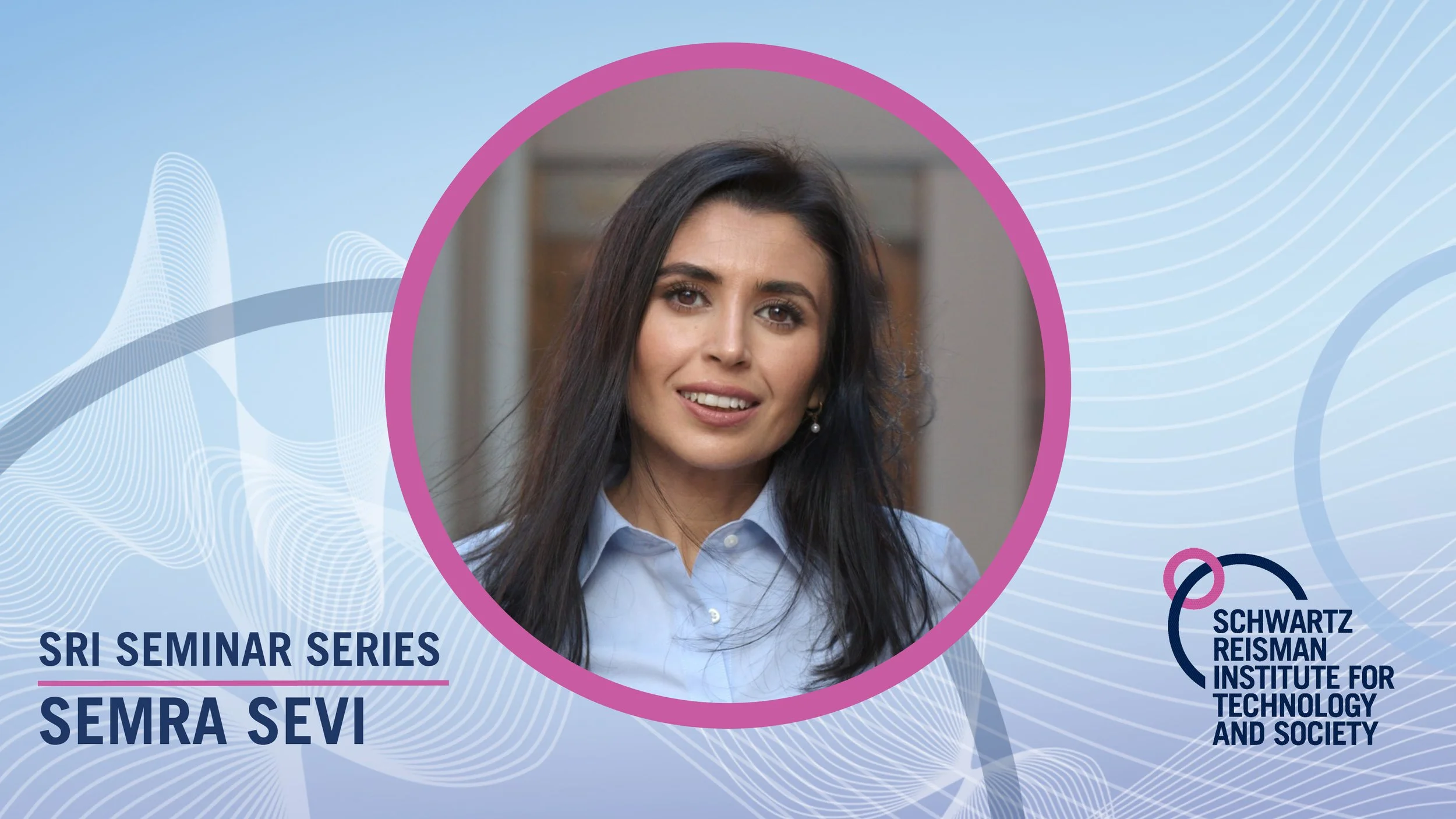
SRI Seminar Series: Semra Sevi, “Chatbot voting advice applications inform but seldom sway young unaligned voters”
Can chatbots help young voters better understand politics? Join the University of Toronto’s Semra Sevi as she presents new findings from experimental research on AI-powered voting aid applications—revealing how these tools boost political knowledge while raising questions about their broader civic impact.

SRI Seminar Series: Brad Knox, University of Texas at Austin
What makes an AI a good companion? Join UT Austin’s Brad Knox for a look at how reinforcement learning and human feedback are shaping the next generation of socially interactive agents—and what it takes to build AI that aligns with our values, needs, and relationships.
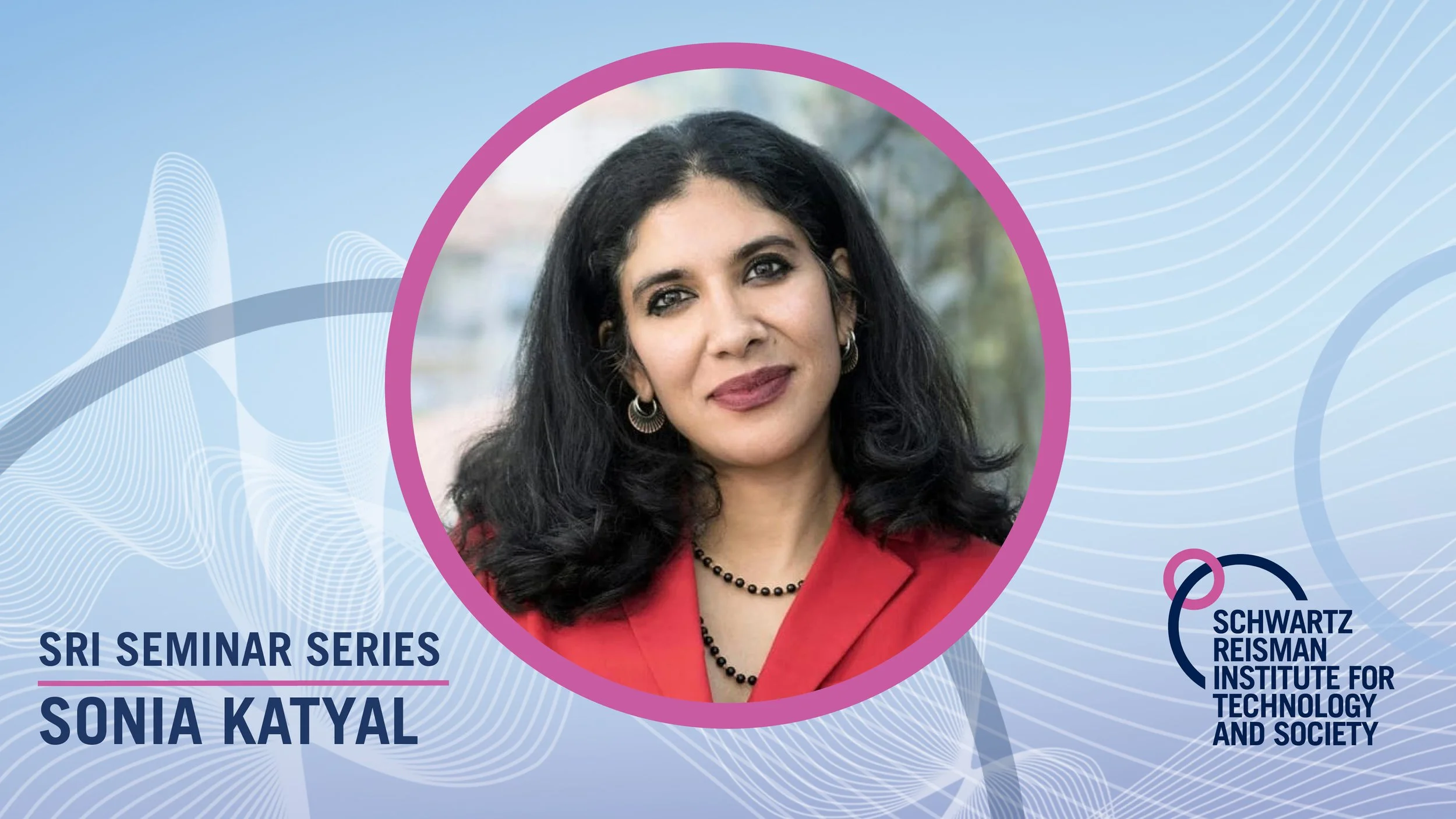
SRI Seminar Series: Sonia Katyal, “Art in walled gardens”
As generative AI reshapes the digital art world, who holds the keys to creativity? Join UC Berkeley’s Sonia Katyal for a provocative look at how contracts and private licensing are redefining the boundaries of creative freedom—threatening to turn culture itself into a walled garden.
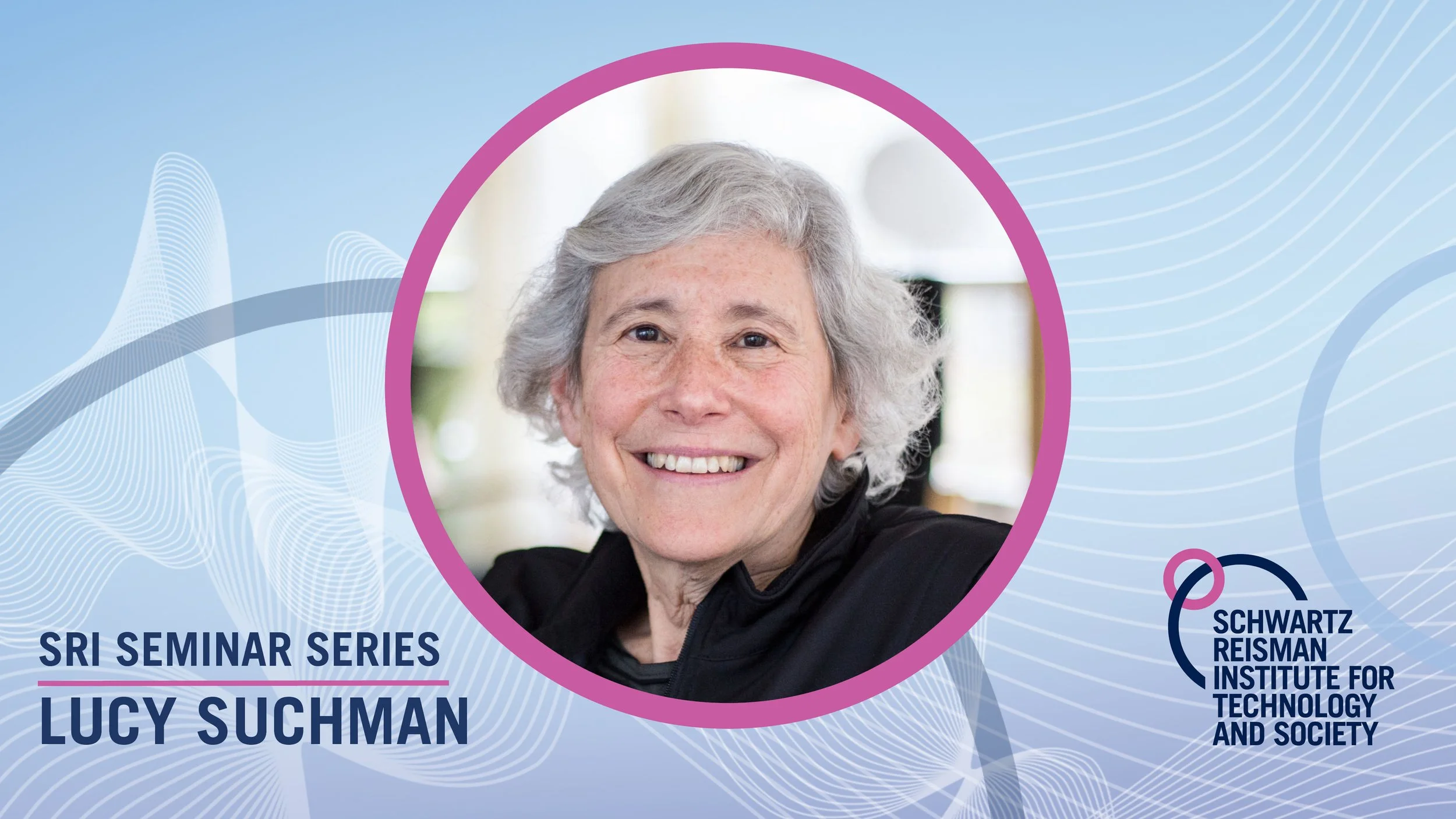
SRI Seminar Series: Lucy Suchman, “Closed worlds and the constitutive outsides of artificial intelligence”
What worldviews shape the rise of AI—and what escapes their grasp? Join Lucy Suchman, a pioneering scholar of human–machine relations, as she critically examines the militarized imaginaries underpinning AI’s development and invites us to consider alternatives beyond closed-world thinking.
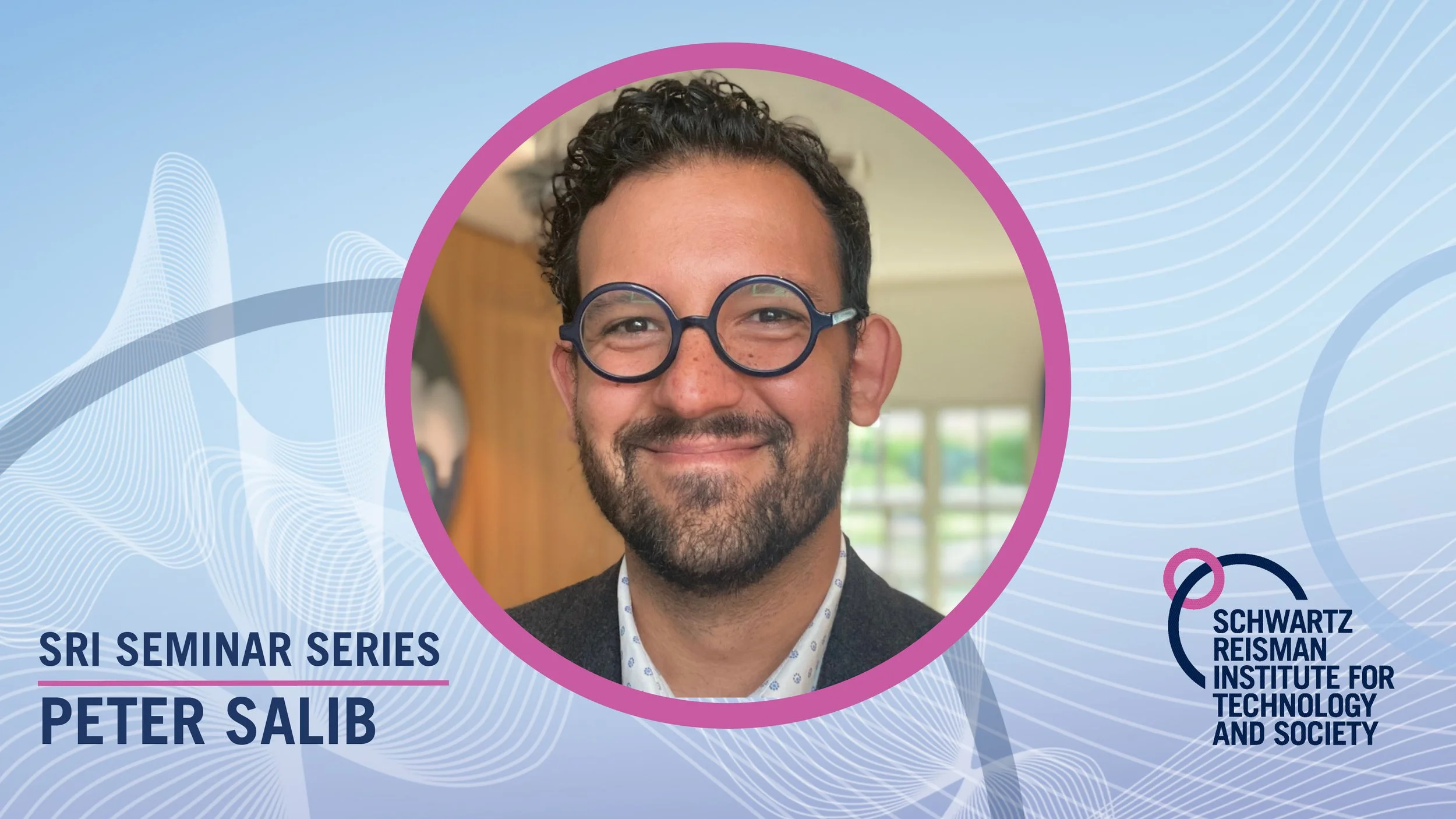
SRI Seminar Series: Peter Salib, “AI rights for human safety”
Could granting rights to AI make humans safer? Join the University of Houston’s Peter Salib as he explores how extending basic legal rights to AI systems—like the ability to contract, hold property, and seek remedies—could reduce the risk of catastrophic human–AI conflict and foster cooperative, peaceful coexistence.
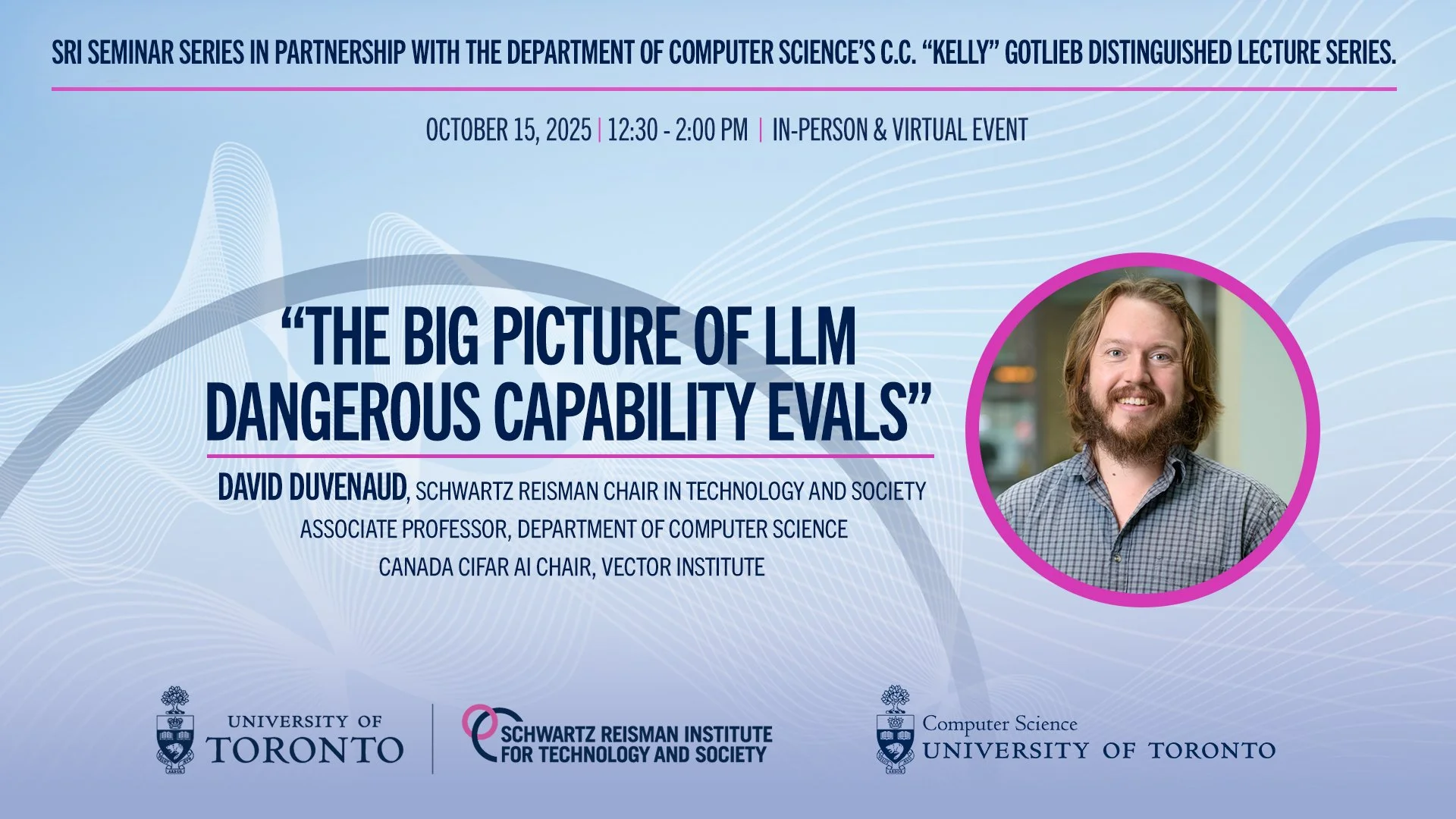
SRI Seminar Series: David Duvenaud, “The big picture of LLM dangerous capability evals”
Join David Duvenaud, University of Toronto computer science professor and leading AI safety researcher, for a timely discussion on emerging risks from advanced AI systems—and how institutions might govern the future of artificial general intelligence. This special in-person presentation is jointly presented as part of the Department of Computer Science’s C.C. “Kelly” Gottlieb Distinguished Lecture Series.
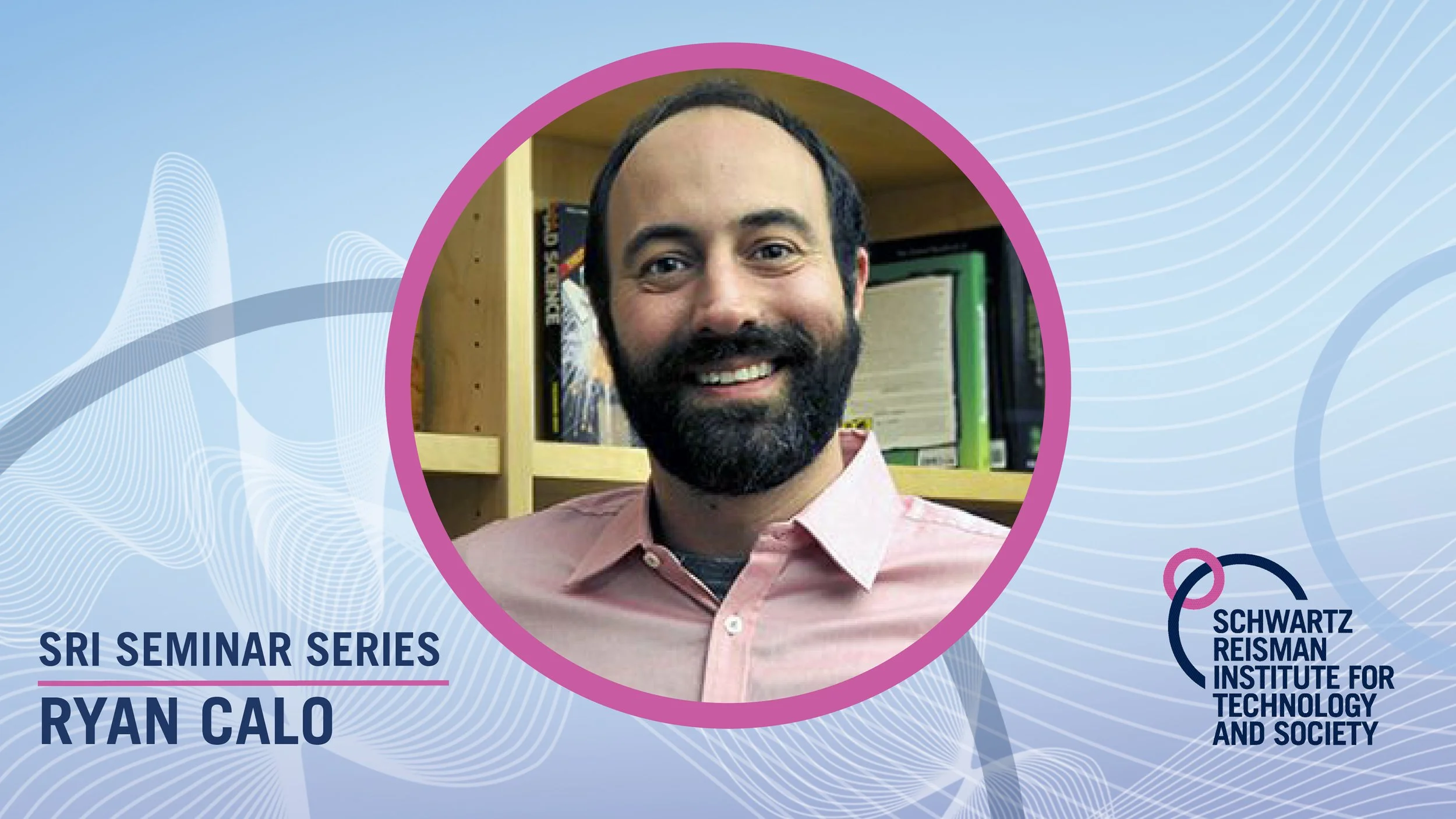
SRI Seminar Series: Ryan Calo, “Law and technology: A methodical approach”
How can law rise to meet the challenges of rapidly evolving technology? Join the University of Washington’s Ryan Calo as he introduces a step-by-step methodology for analyzing and challenging technology to serve society’s needs, drawing on insights from his new book Law and Technology: A Methodical Approach.

SRI Seminar Series: Anastasia Kuzminykh, “The power of discussion: Designing useful communication with AI agents”
In this talk, Kuzminykh will explore how conversational interfaces with large language models (LLMs) are reshaping how people seek information, make decisions, and engage in creative work. While these systems offer intuitive and accessible interaction, they also raise concerns about user overreliance, prompt formulation challenges, bias amplification, and echo chambers. Drawing from her research with the COoKIE AI group, Kuzminykh examines the design of conversation architectures that can support more ethical, effective, and efficient human–AI collaboration.
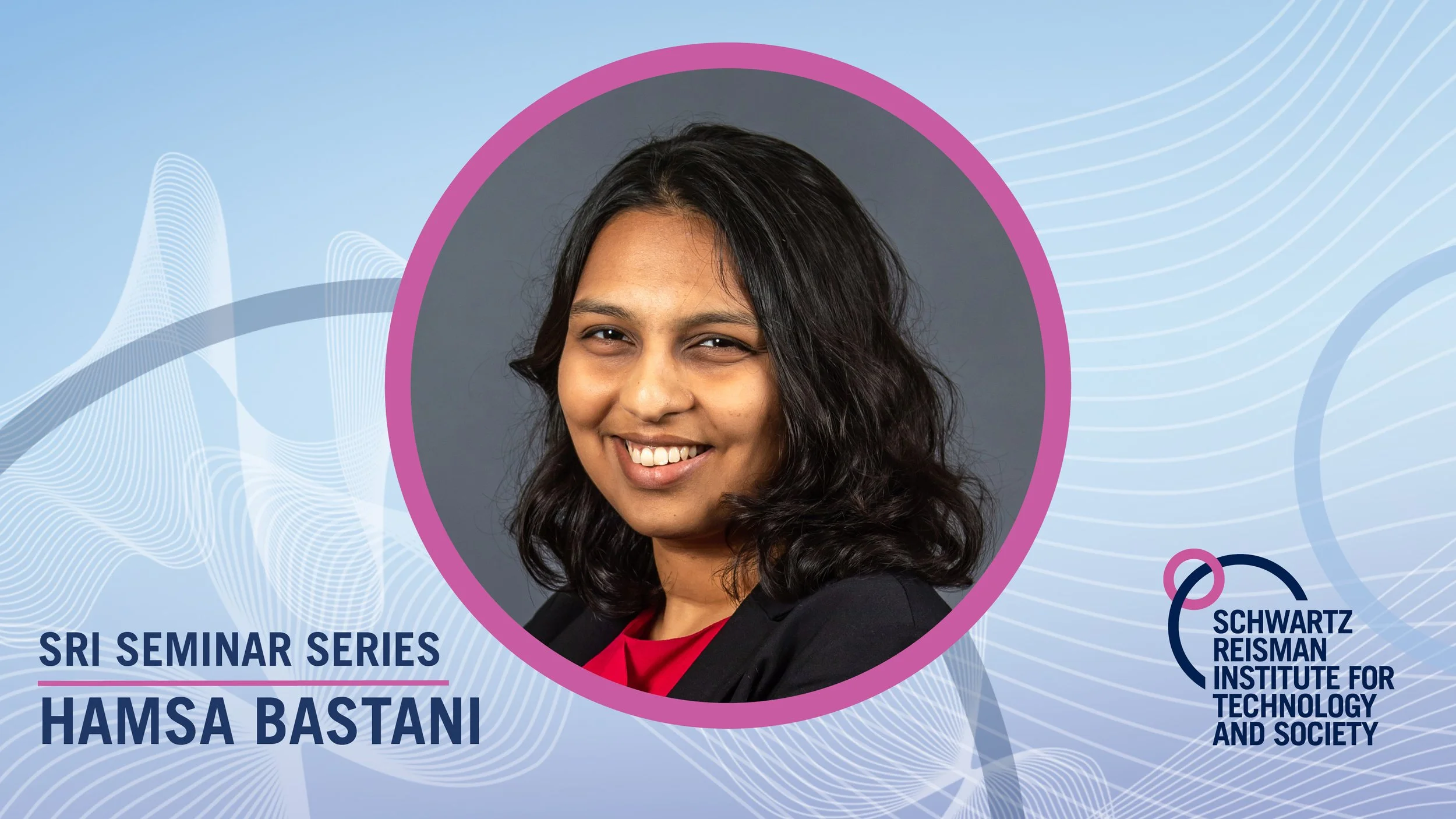
SRI Seminar Series: Hamsa Bastani, “Unpacking the unintended consequences of AI in education”
Can generative AI make us worse learners? Join the Wharton School’s Hamsa Bastani as she presents surprising findings from a large-scale study of AI tutors in high school classrooms—revealing how tool design can make or break learning outcomes, and why guardrails are key to long-term productivity in the age of AI.
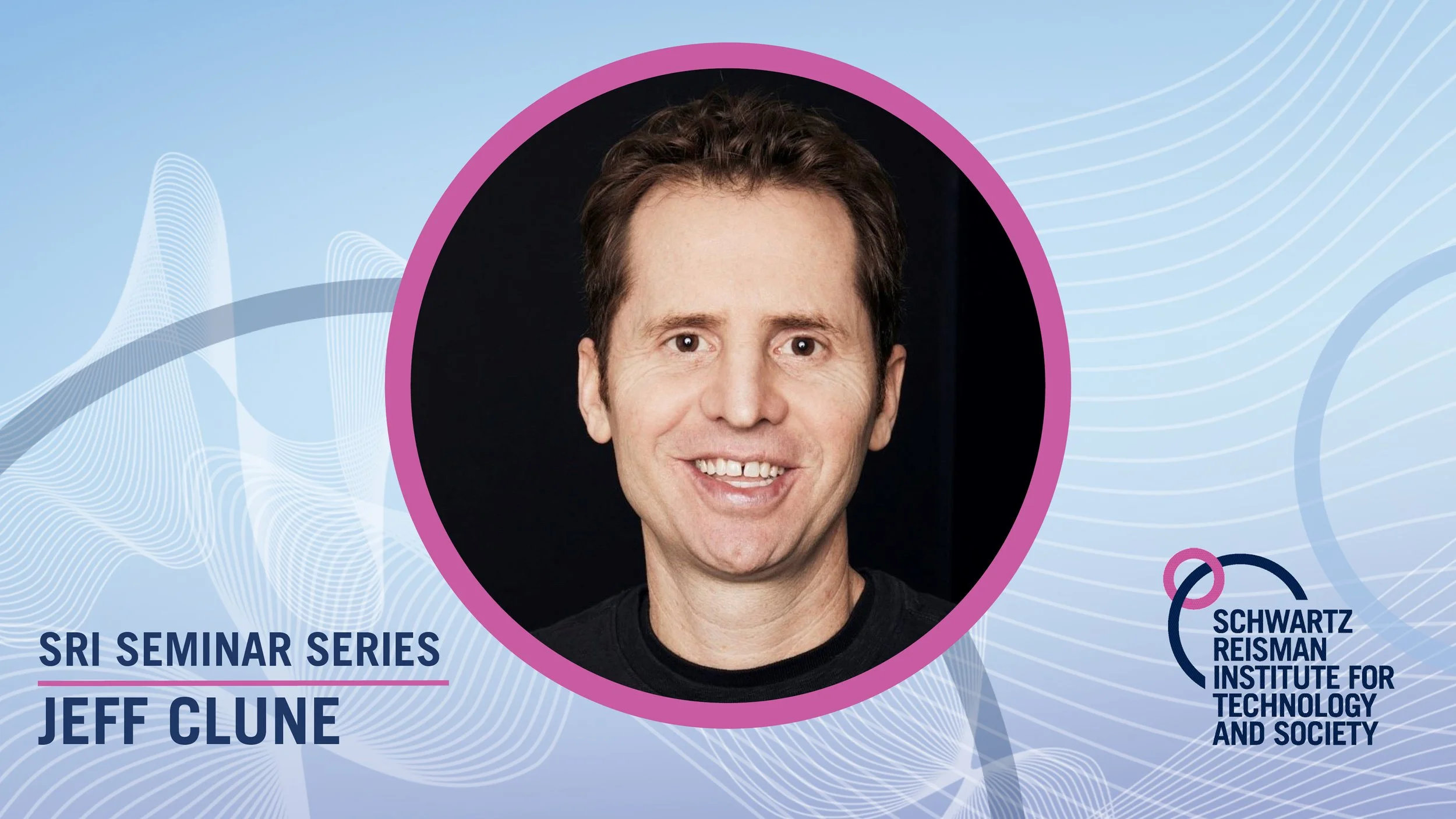
SRI Seminar Series: Jeff Clune, “Open-ended and AI-generating algorithms in the era of foundation models”
How can foundation models drive open-ended innovation and learning? Join the University of British Columbia’s Jeff Clune as he explores groundbreaking advancements in the development of open-ended algorithms and agents that showcasing how these technologies are shaping the future of AI creativity and discovery.

SRI Seminar Series: Sandra Wachter, “Do large language models have a legal duty to tell the truth?”
What is the legal and societal cost of “careless speech” in large language models? Join Sandra Wachter, professor of technology and regulation at the University of Oxford, for an exploration of how AI mistruths threaten knowledge systems and social trust, and how legal frameworks can address these emerging risks.

SRI Seminar Series: Joshua August Skorburg, “Decisions, decisions, decisions: A value-based account of the attention economy”
What really drives our attention in the digital age—addiction and compulsion, or our own representations of value? Join the University of Guelph’s Joshua August Skorburg for a talk exploring a new way of understanding the attention economy, showing how digital distractions influence our choices and sense of control.
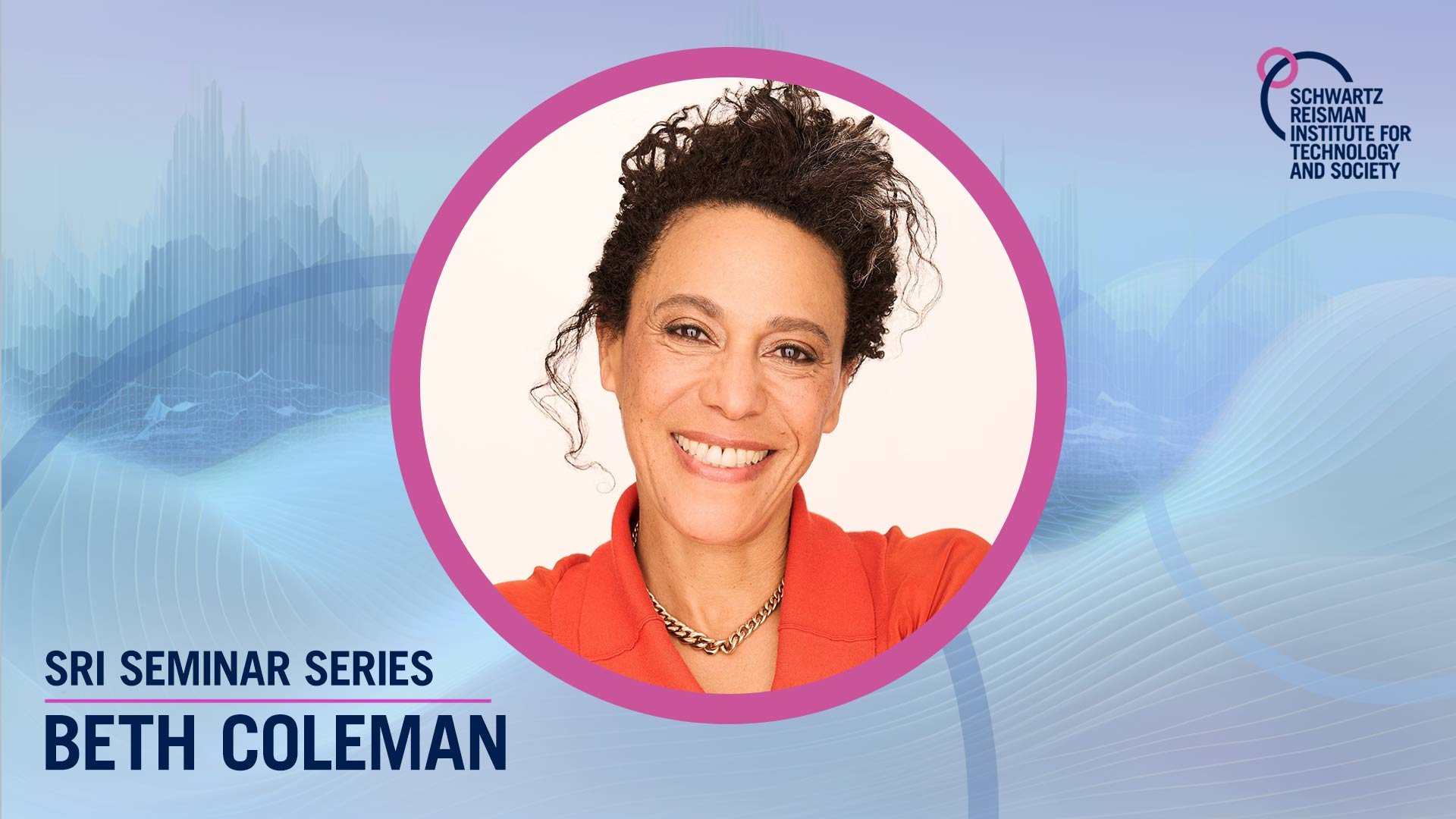
SRI Seminar Series: Beth Coleman, “Building trust in AI: A multi-disciplinary approach to a key paradigm”
Join SRI Research Lead Beth Coleman for a talk exploring the pivotal role of trust in human interactions with machine learning and AI technologies.
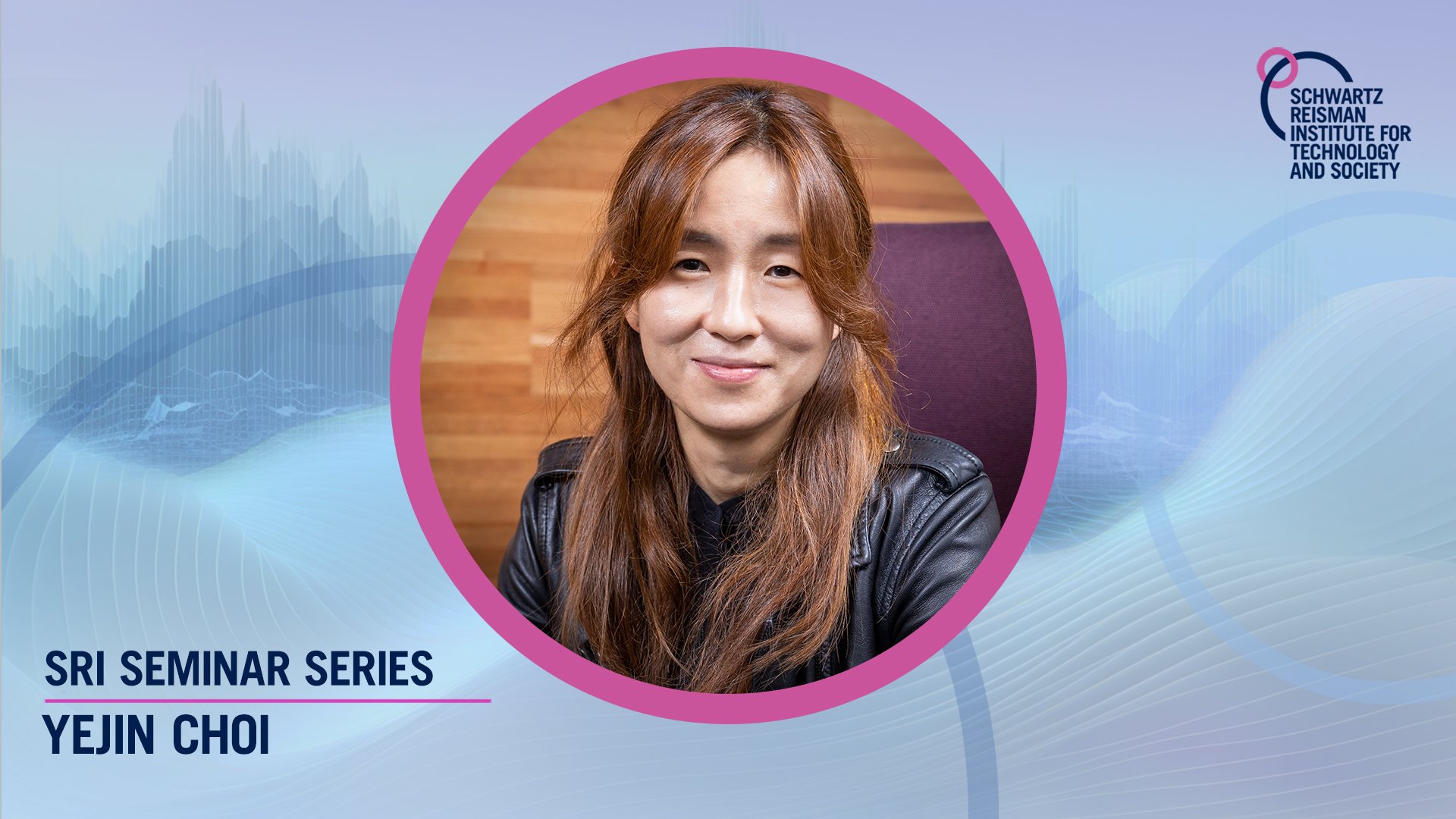
SRI Seminar Series: Yejin Choi,“The enigma of LLMs: On creativity, pluralism, and paradoxes”
Join Yejin Choi, incoming professor in the Department of Computer Science at Stanford University, for an engaging presentation on the design of commonsense and moral reasoning in AI systems.
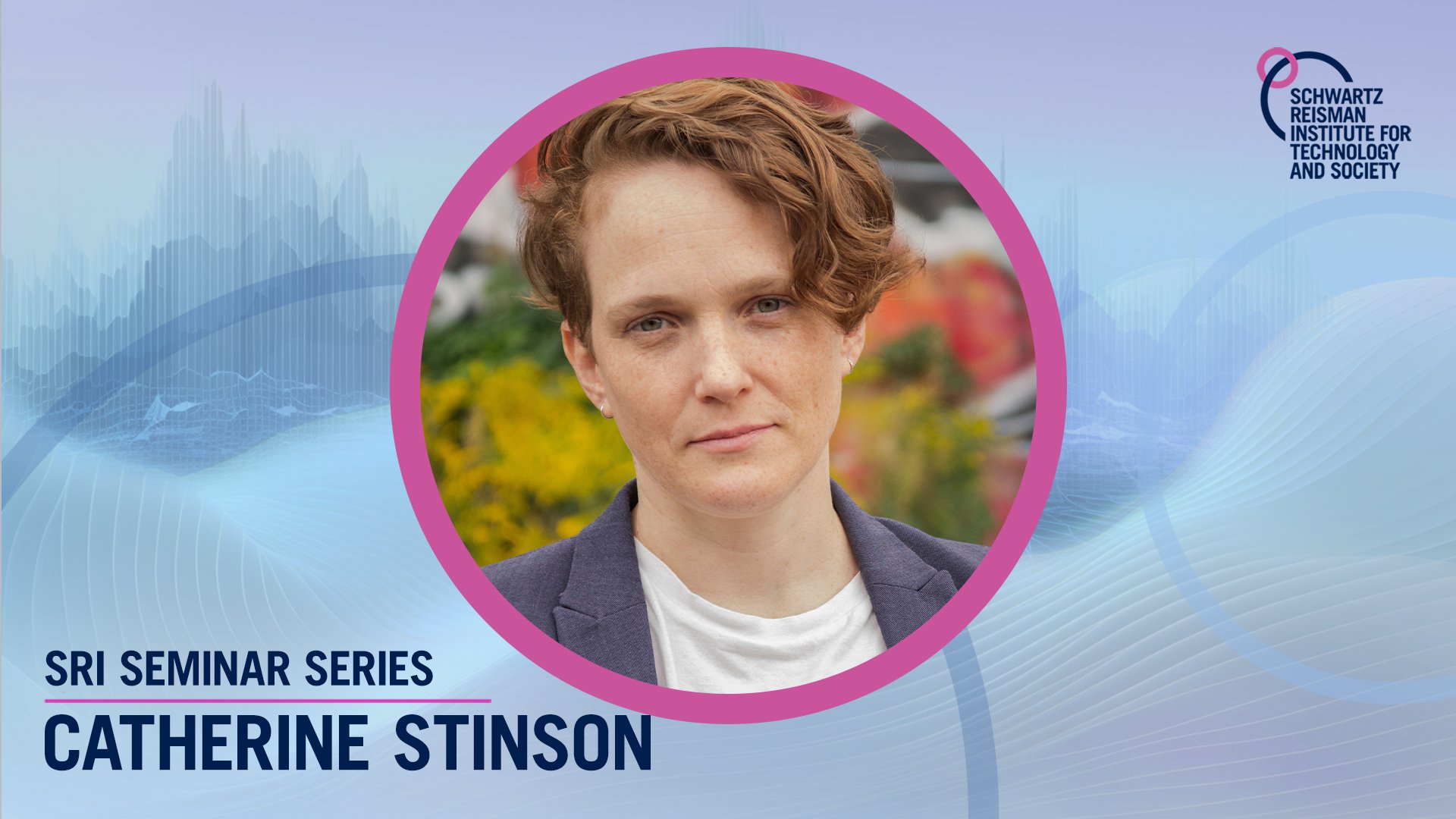
SRI Seminar Series: Catherine Stinson, “Artificial intelligence benchmarks and degenerating research”
Join Catherine Stinson, Queen’s National Scholar in the Philosophical Implications of AI, for a special in-person seminar on the role of benchmark datasets in AI research, co-presented by the Institute for the History and Philosophy of Science and Technology.
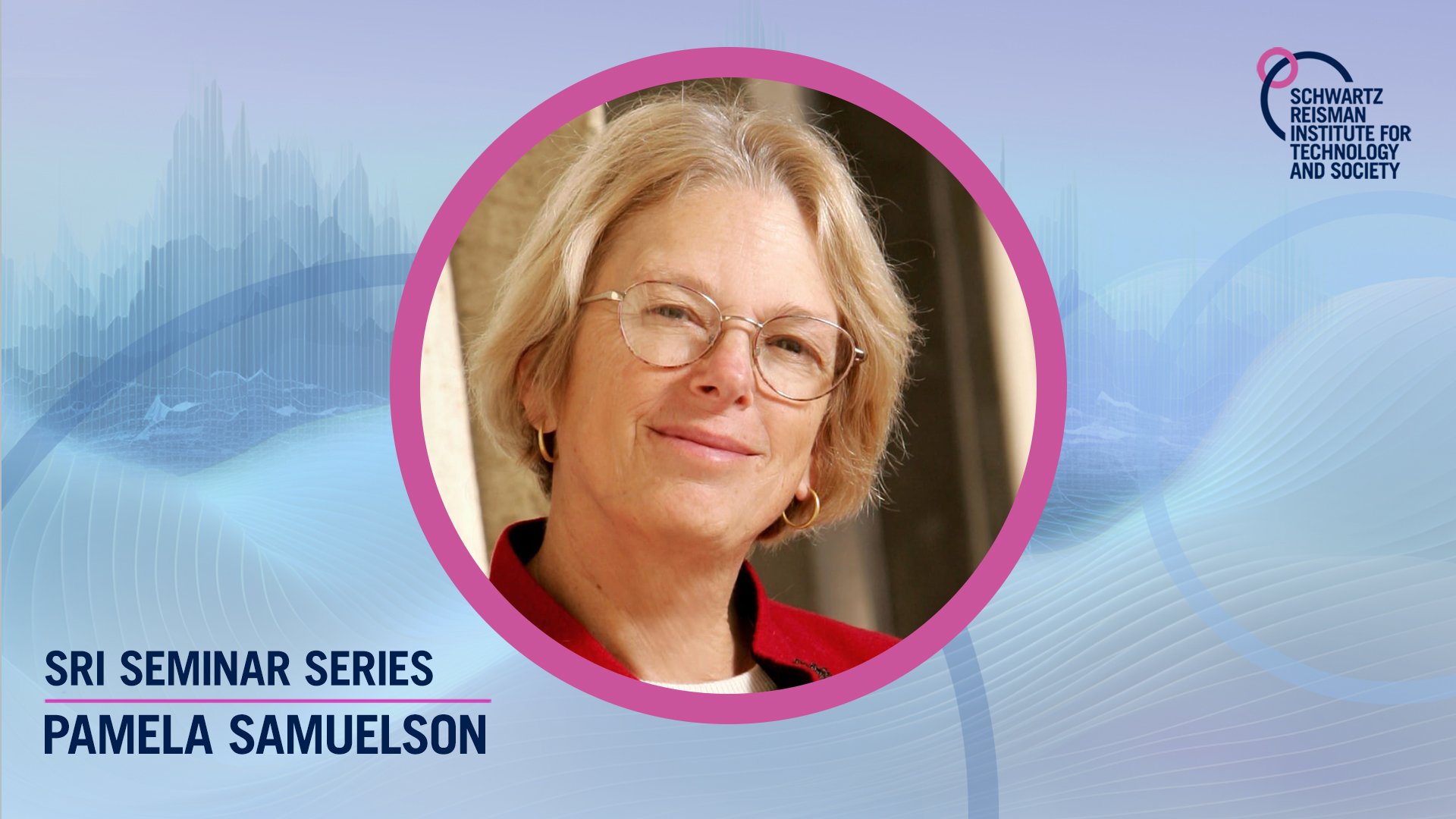
SRI Seminar Series: Pamela Samuelson, “Will copyright derail generative AI technologies?”
Join Pamela Samuelson, distinguished professor of law at UC Berkeley and co-director of the Berkeley Center for Law & Technology, for a talk on the copyright challenges and legal implications posed by generative AI technologies.
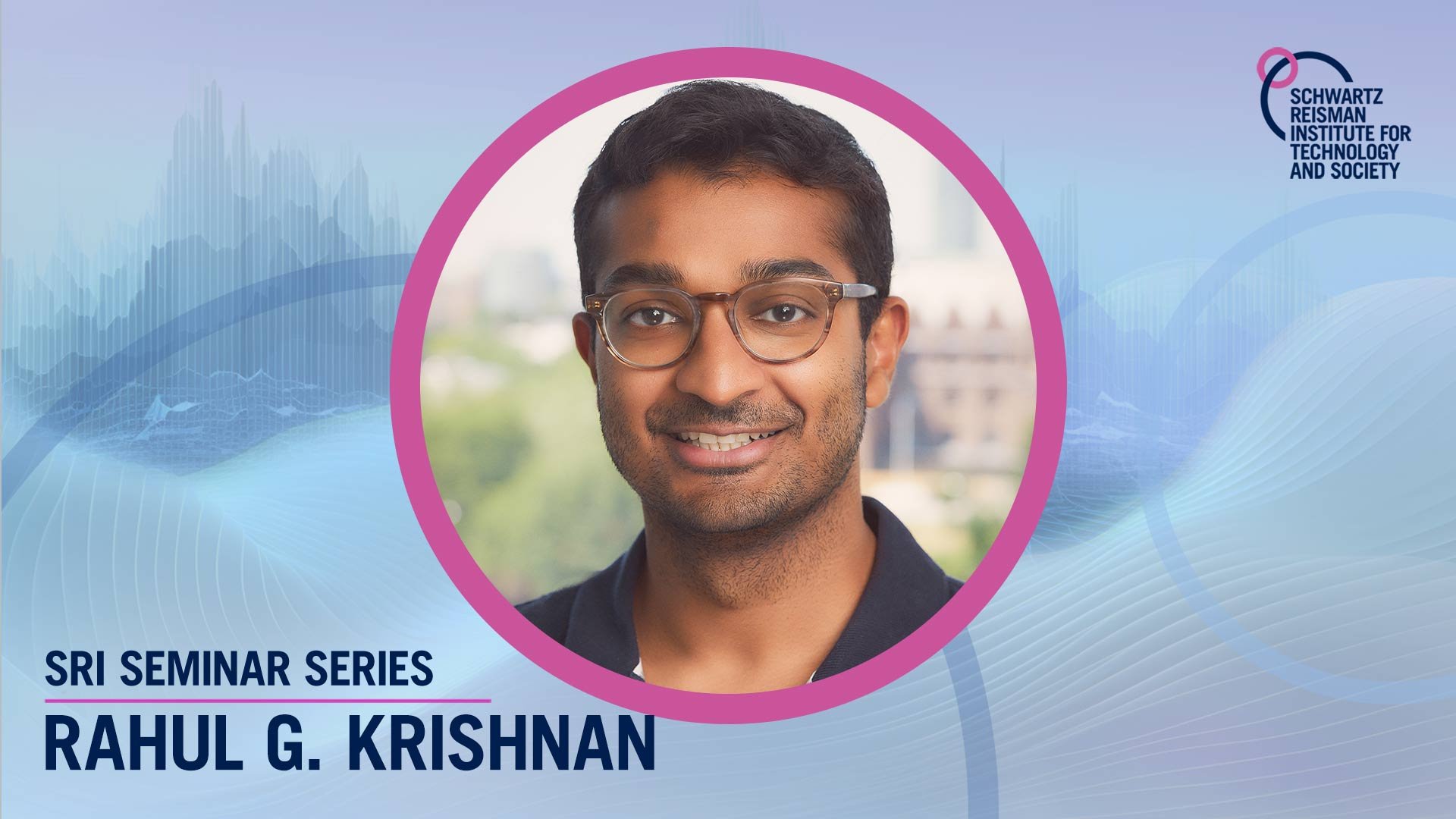
SRI Seminar Series: Rahul G. Krishnan, “From associational to causal predictions with deep learning”
How is machine learning transforming healthcare? Join Rahul G. Krishnan, University of Toronto professor and Canada Research Chair in Computational Medicine, to discover how AI innovations are revolutionizing diagnostics, treatment, and personalized care.

SRI Seminar Series: Virginia Dignum, “Beyond the AI hype: Balancing innovation and social responsibility”
How can we build AI systems that reflect human values and promote social good? Join Virginia Dignum, professor of computer science at Umeå University, for a discussion on the ethical design and governance of artificial intelligence technologies.

SRI Seminar Series: Christopher Summerfield, “The Habermas Machine: Using AI to help people find common ground”
Can AI systems act as an mediator to help groups with differing views find consensus? Join Christopher Summerfield, professor of cognitive neuroscience at the University of Oxford, to explore how AI systems shed light on human decision-making.
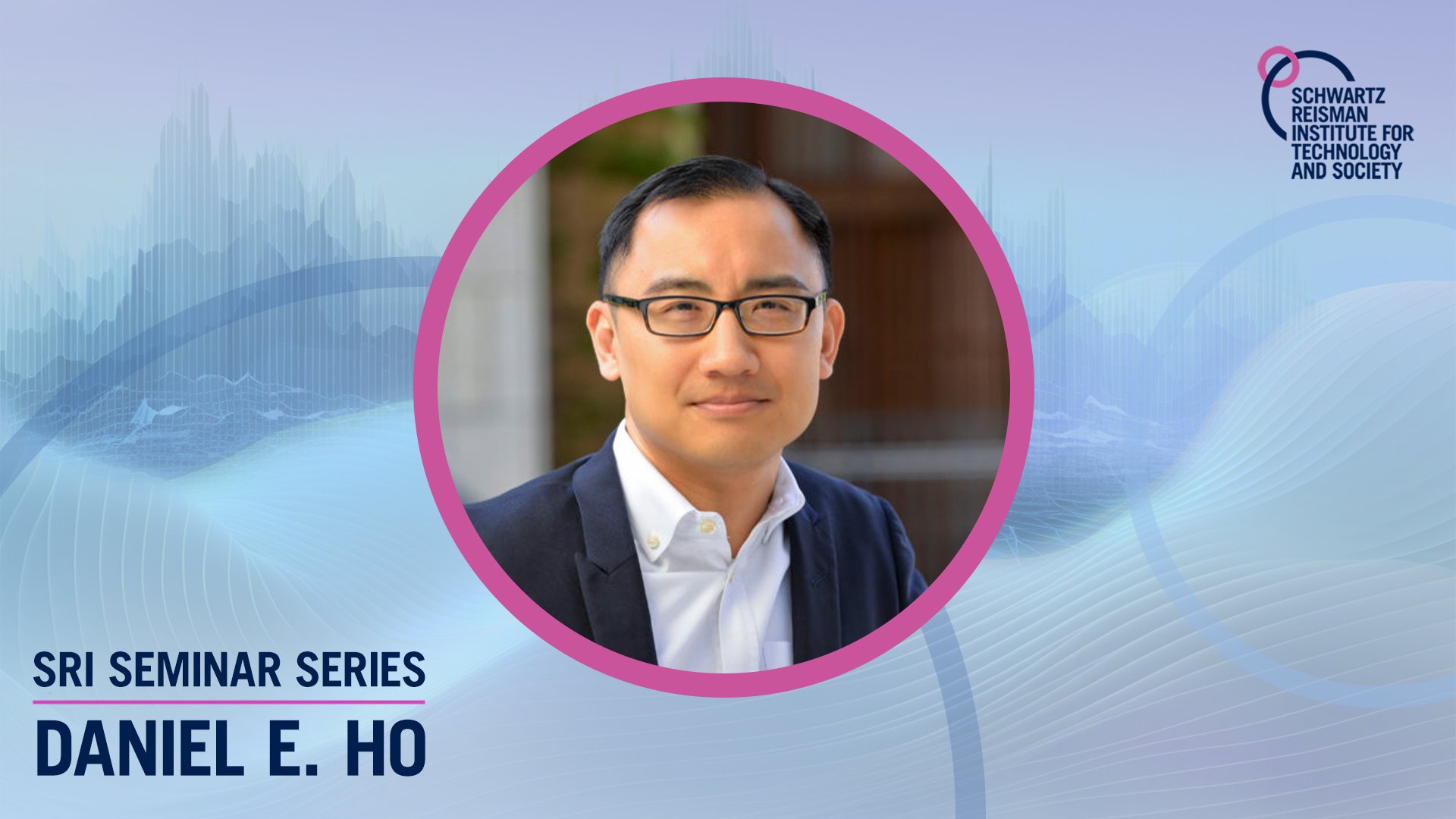
SRI Seminar Series: Daniel E. Ho, “Large legal fictions: Assessing the reliability of AI in legal research”
What emerging risk frameworks and policy considerations for the use of advanced technologies like AI in high-stakes contexts are on the horizon? Join Stanford’s Daniel E. Ho to learn about assessing the reliability of AI in legal research.
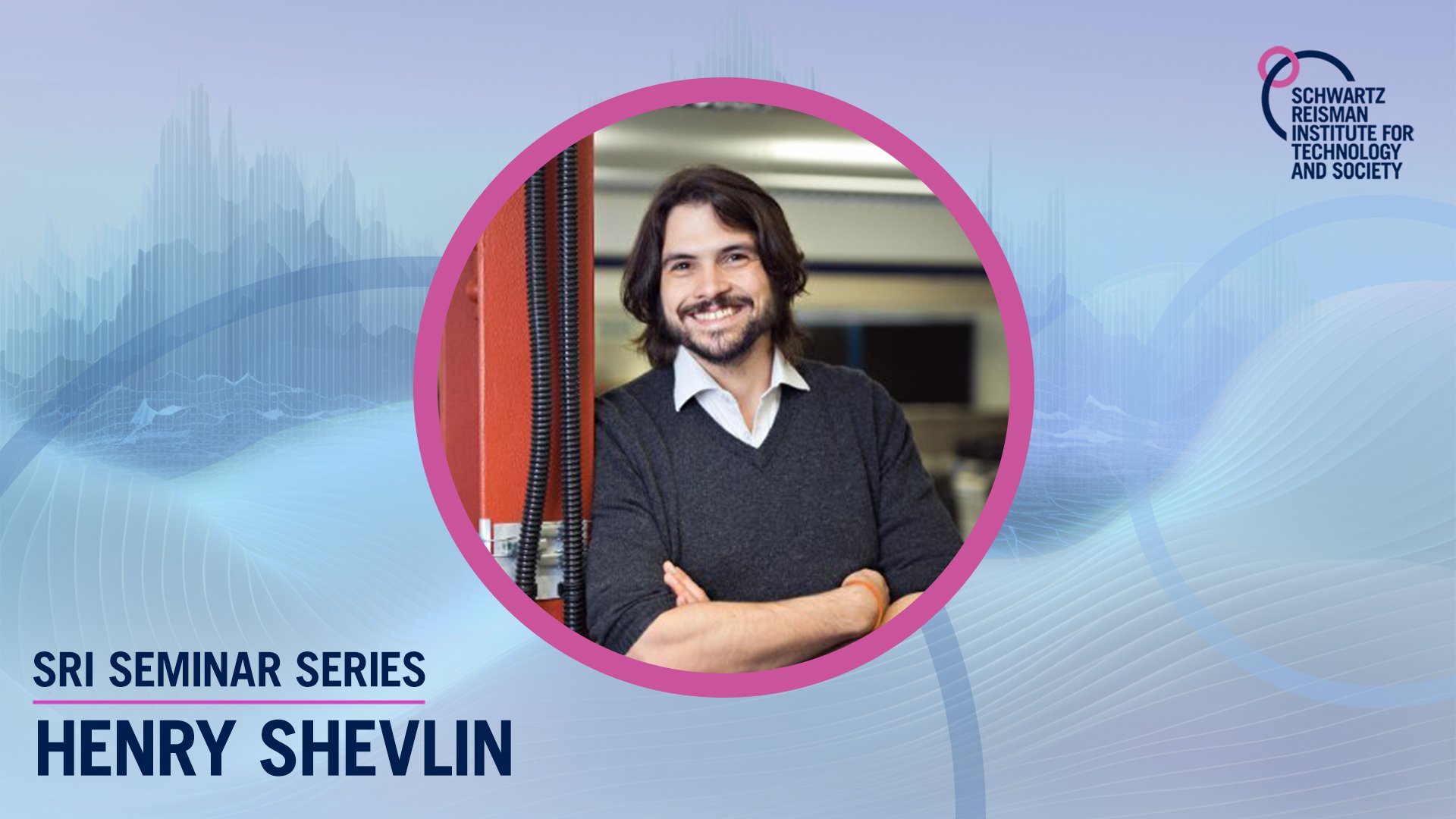
SRI Seminar Series: Henry Shevlin, “All too human? Identifying and mitigating ethical risks of Social AI”
What ethical risks might occur when AI systems are used for human social needs like romance, companionship, or entertainment? Join the University of Cambridge’s Henry Shevlin for an exploration of the potential benefits and harms of social AI.
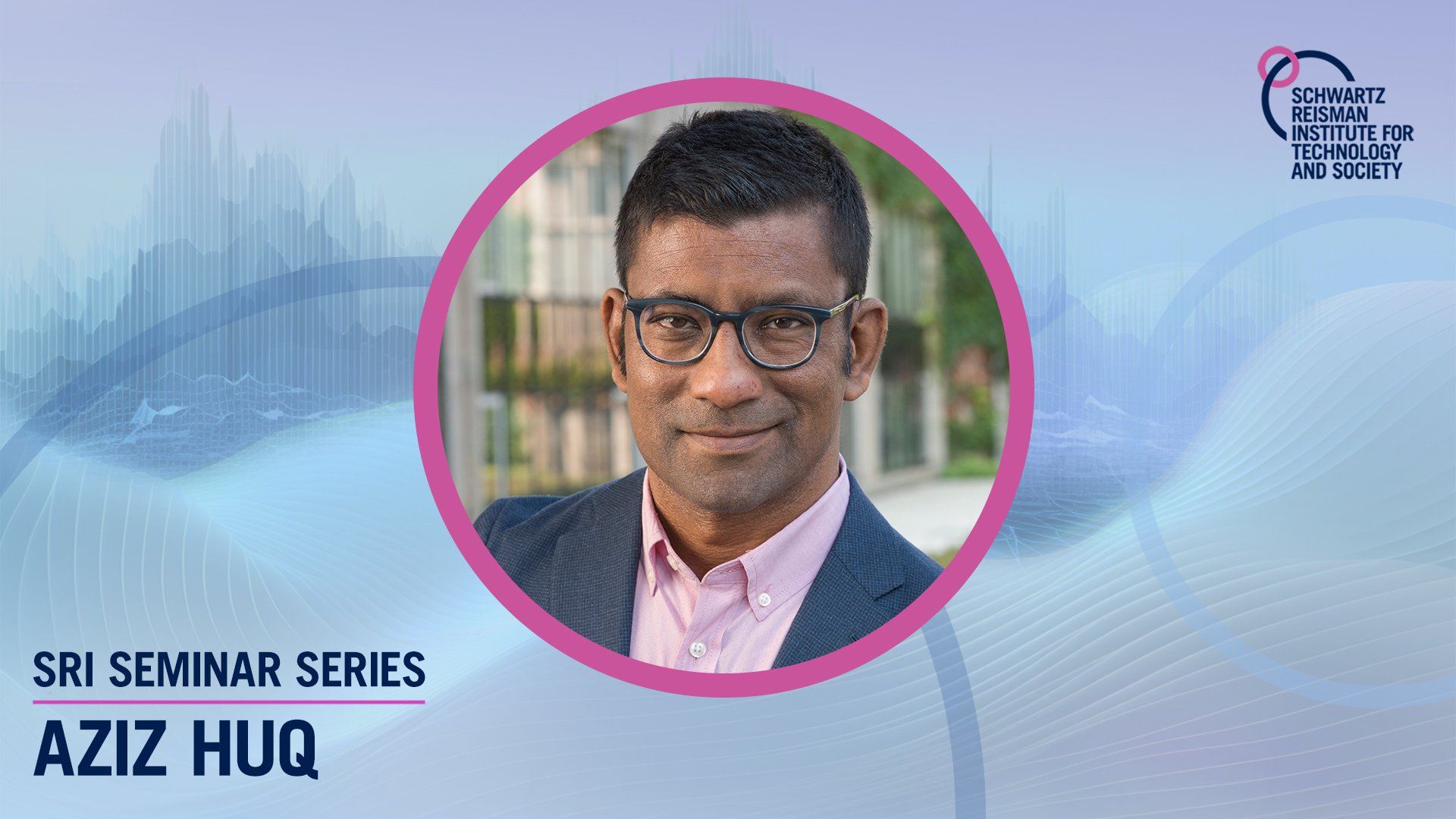
SRI Seminar Series: Aziz Huq, “The geopolitics of digital regulation”
How is the regulation of digital technologies influenced by geopolitical competition? Join the University of Chicago’s Aziz Huq for a talk on the future of the governance of technology.
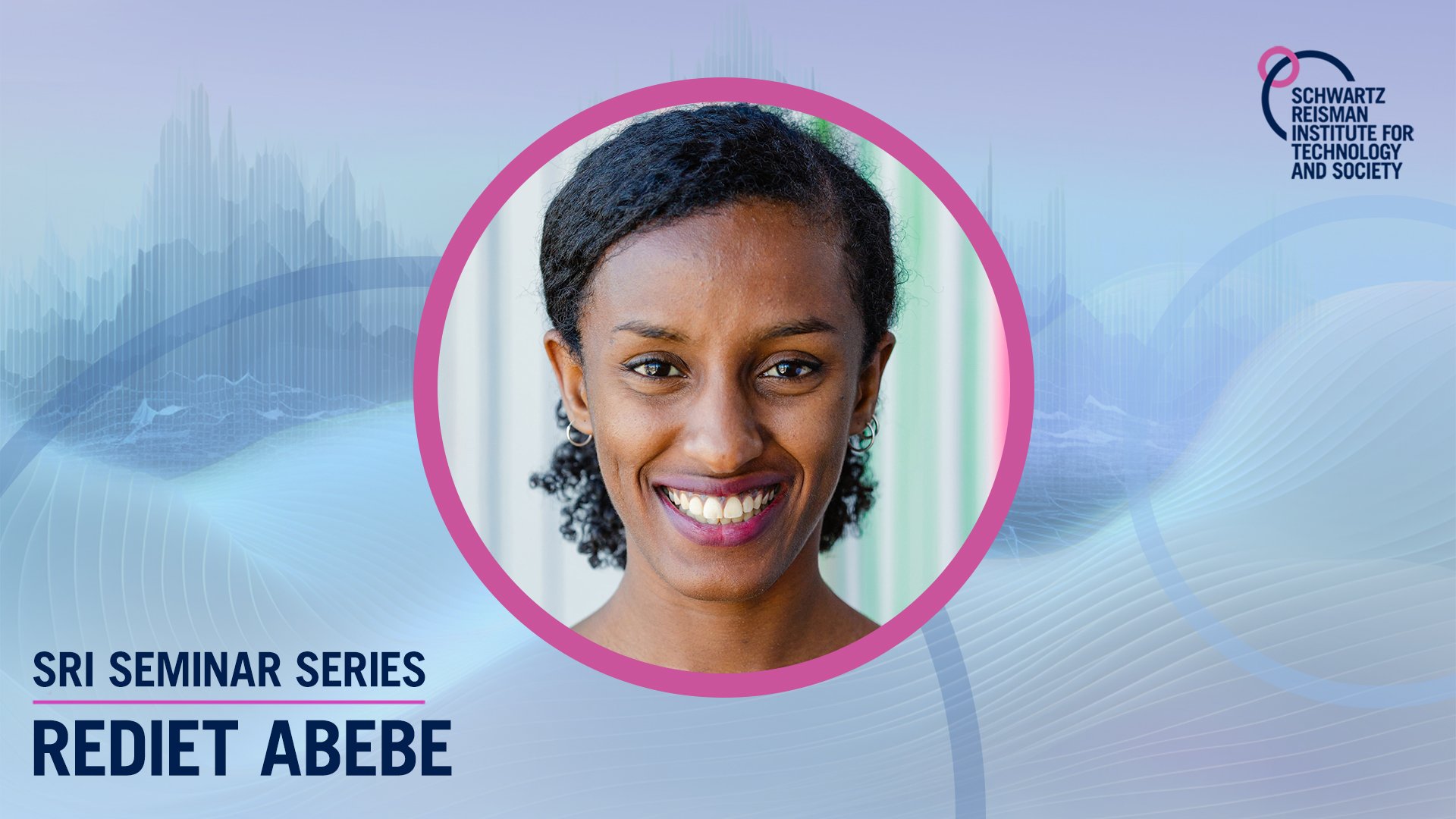
SRI Seminar Series: Rediet Abebe, “When does resource allocation require prediction?”
How can algorithms contribute to or reduce inequality? Join Rediet Abebe to explore how mathematics and computation can support more equitable outcomes in the public sphere.
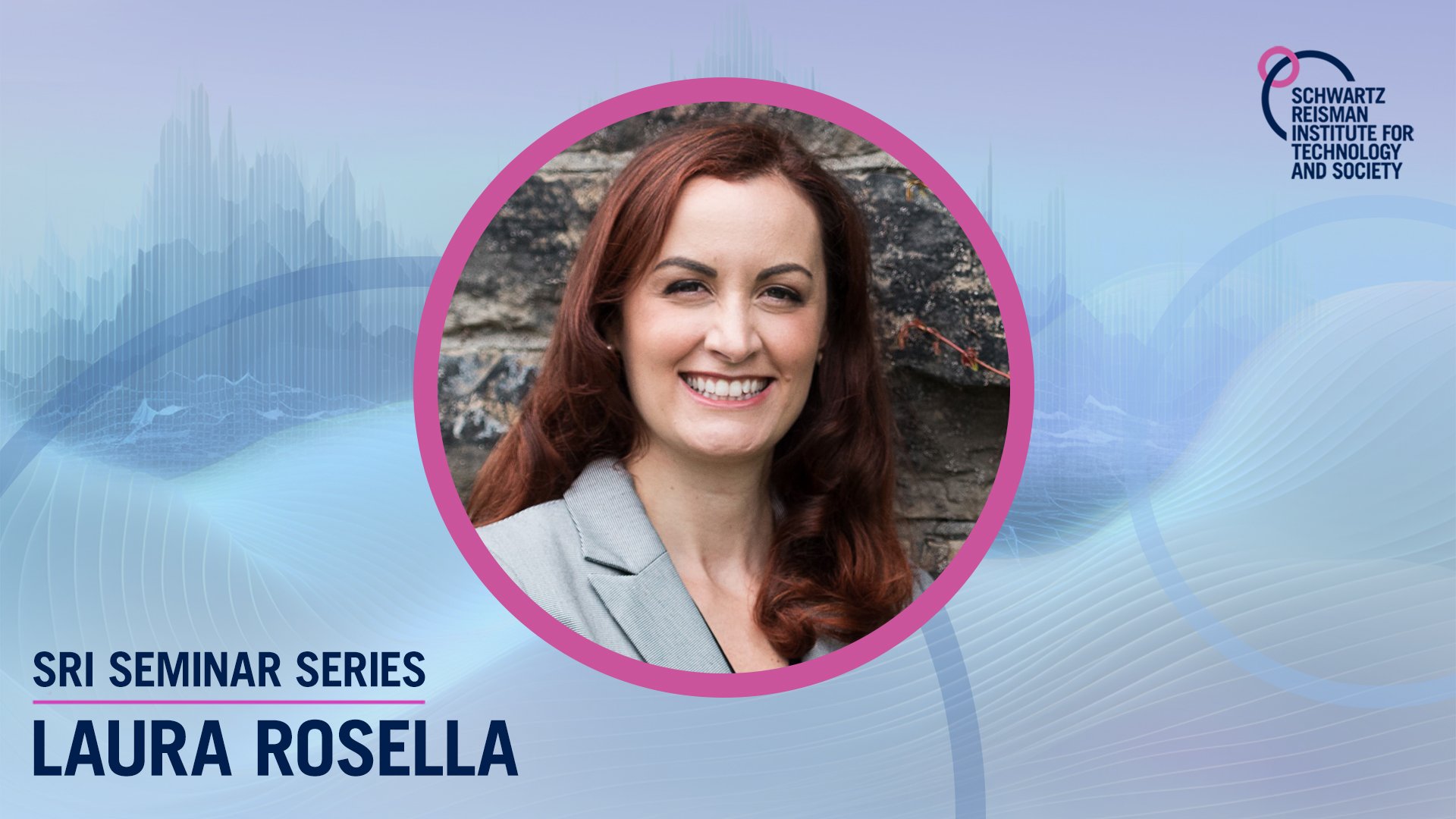
SRI Seminar Series: Laura Rosella, “From development to deployment: Can we improve the health of populations with AI?”
How can AI systems better support public health planning and policy? Join SRI Faculty Affiliate Laura Rosella for insights on how AI and data are transforming public health.

SRI Seminar Series: Roger Grosse, “On the origin of rogue AI”
Can LLMs or agents built on top of them spontaneously “go rogue"? Join SRI Chair Roger Grosse for a special in-person edition of the SRI Seminar Series.
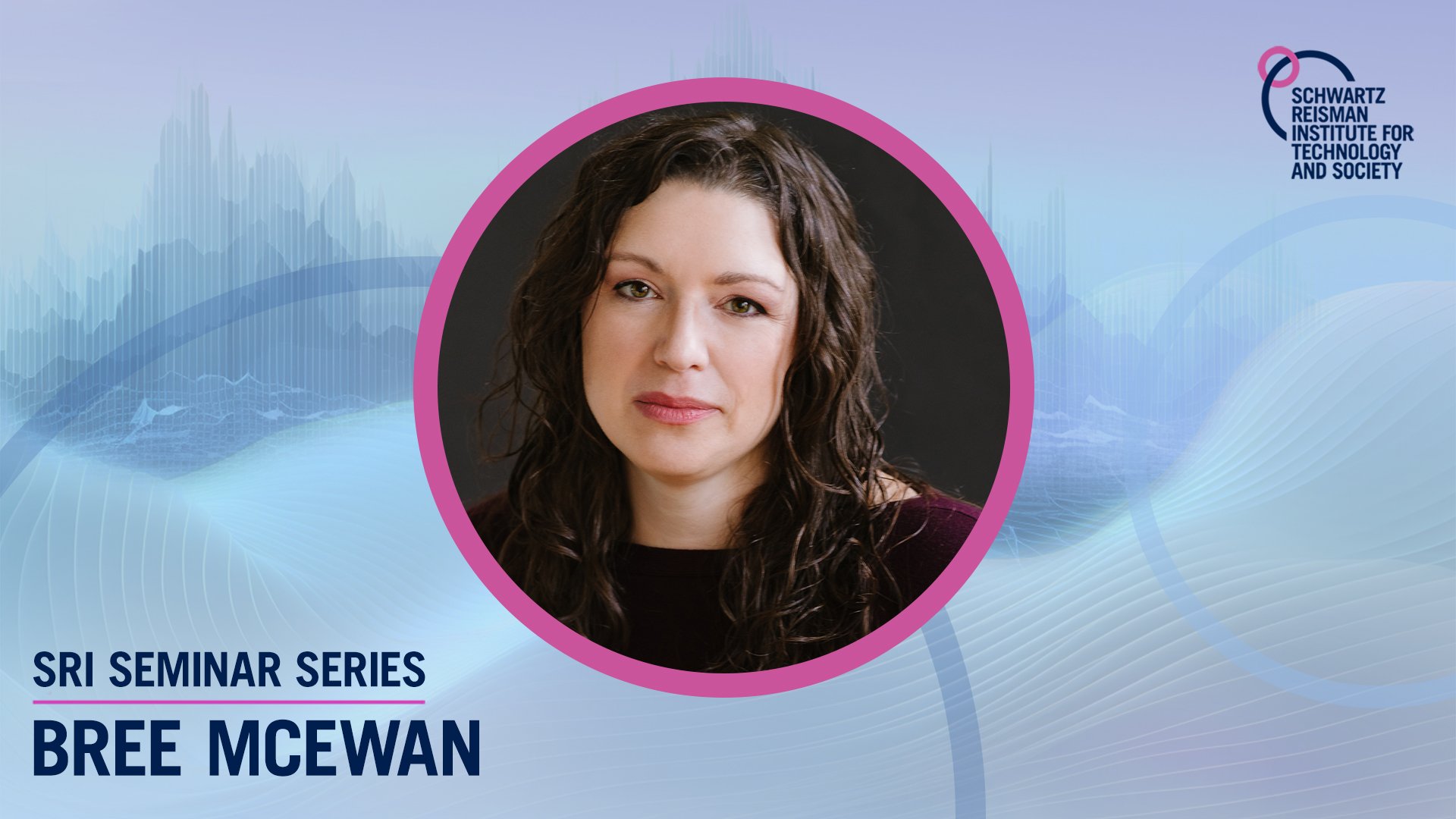
SRI Seminar Series: Bree McEwan, “Generating the metaverse: Musings on agents, authenticity, and artificial intelligence in virtual reality”
How are online networks, VR, and generative AI transforming the human experience? Join SRI Faculty Affiliate Bree McEwan to explore how technology is impacting the ways we communicate today.
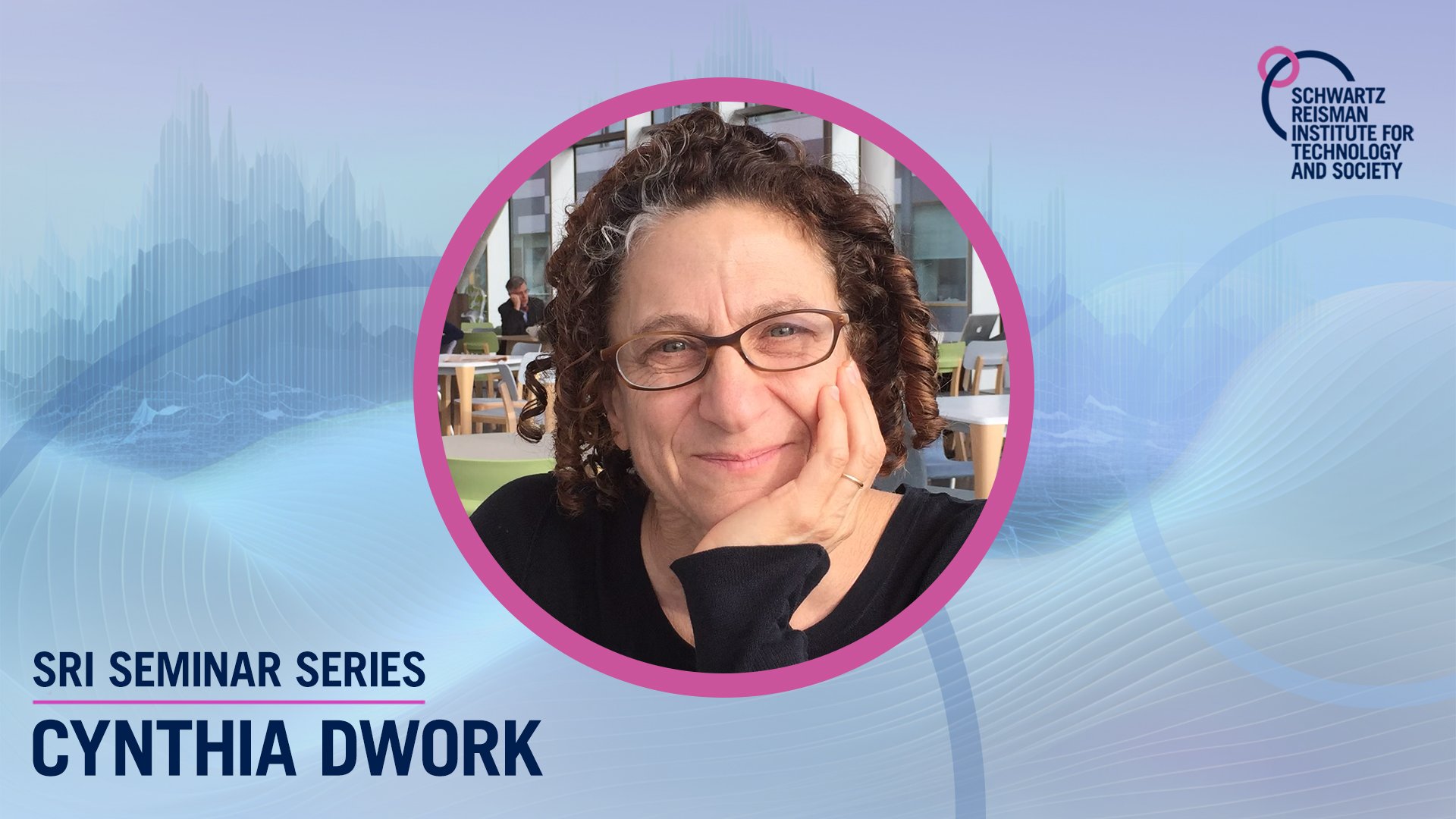
SRI Seminar Series: Cynthia Dwork, “Prediction, fairness, and... complexity theory?”
How can we build technical systems that are secure and trustworthy? Join renowned computer scientist Cynthia Dwork of Harvard University for a talk on her latest research.
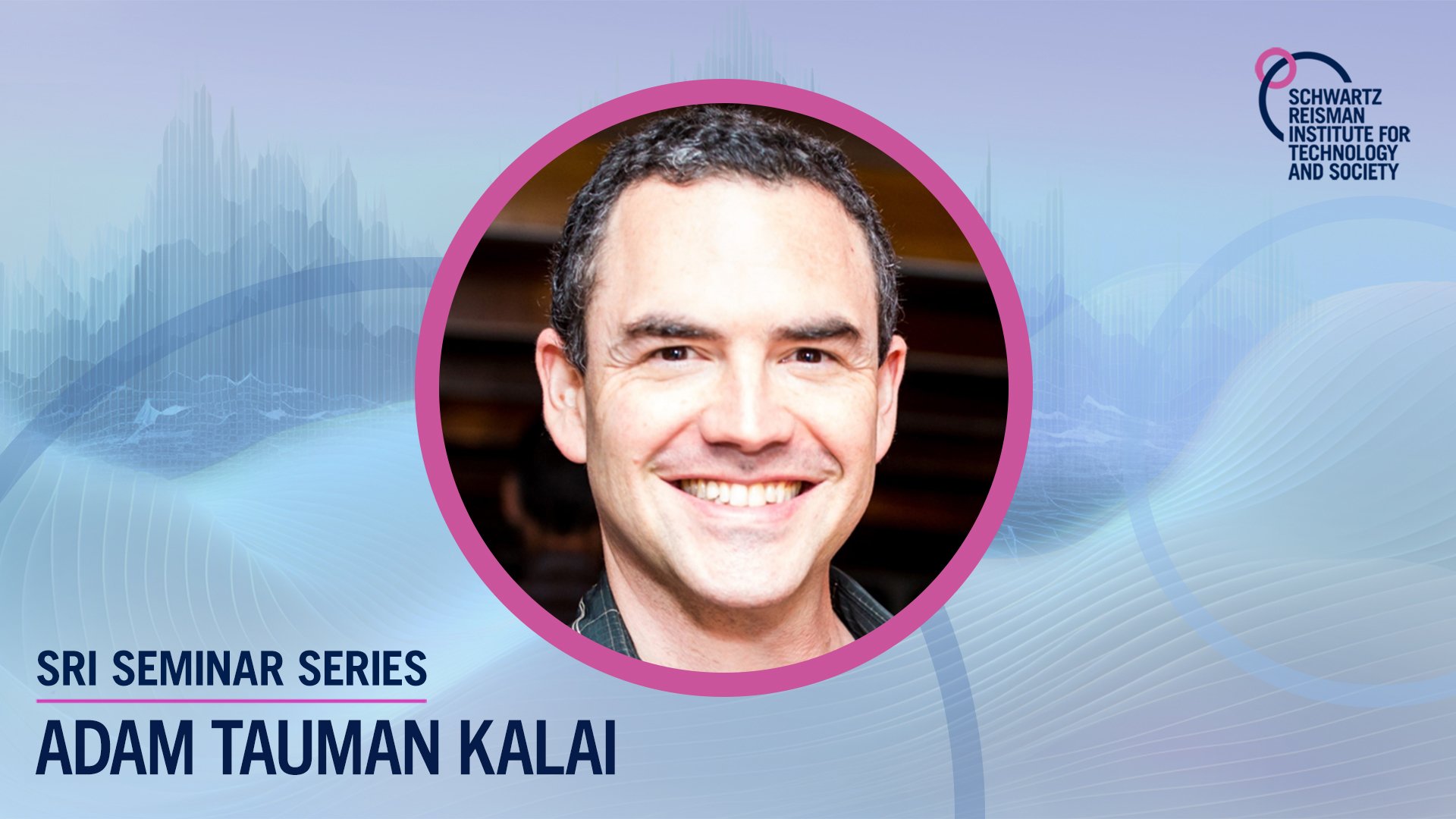
SRI Seminar Series: Adam Tauman Kalai, “When calibration goes awry: Hallucination in language models”
Why do large language models “hallucinate” facts and what can be done to mitigate this phenomenon? Join OpenAI’s Adam Tauman Kalai to learn more about new approaches towards AI alignment and safety.

SRI Seminar Series: Terry Flew, “Trust and communication: The question of mediated trust”
How can we better understand the role of public trust in digital media? Join the University of Sydney’s Terry Flew to explore new approaches towards questions of mediated trust.

SRI Seminar Series: Luciano Floridi, “What is the impact of AI on democracy?”
Luciano Floridi is the founding director of the Digital Ethics Center at Yale University, where he is also a professor in the Cognitive Science Program. World-renowned as one of the most authoritative voices of contemporary philosophy, Floridi is a founding figure within the philosophy of information and one of the major interpreters of the digital revolution. He is deeply engaged with policy initiatives on the socio-ethical value and implications of digital technologies and collaborates closely on these topics with many governments and companies worldwide.
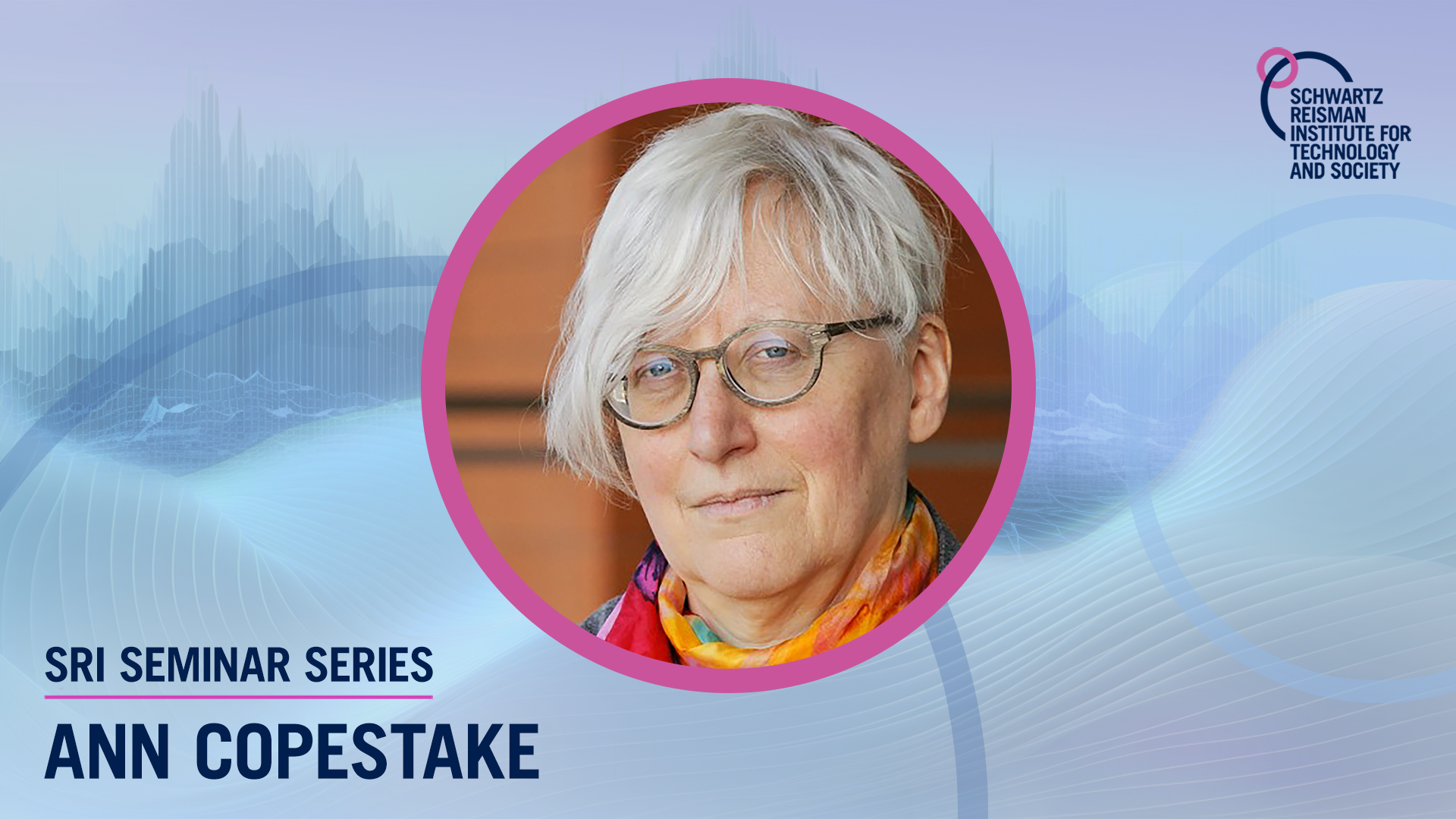
SRI Seminar Series: Ann Copestake, “LLMs and the Information Layer"
Ann Copestake is a professor of computational linguistics at the Department of Computer Science and Technology at the University of Cambridge. Her research involves developing computer models of human languages, including explores the development of semantic models compatible with broad-coverage computational processing, and establishing the performance of deep learning systems according to linguistic criteria.

SRI Seminar Series: Iason Gabriel, “The ethics of advanced AI assistants”
Iason Gabriel is a staff research scientist at Google DeepMind whose work focuses on the ethics of artificial intelligence, including questions about AI value alignment, distributive justice, language ethics and human rights. Gabriel has contributed to several projects that promote responsible innovation in AI, including the creation of the ethics review process at NeurIPS.

